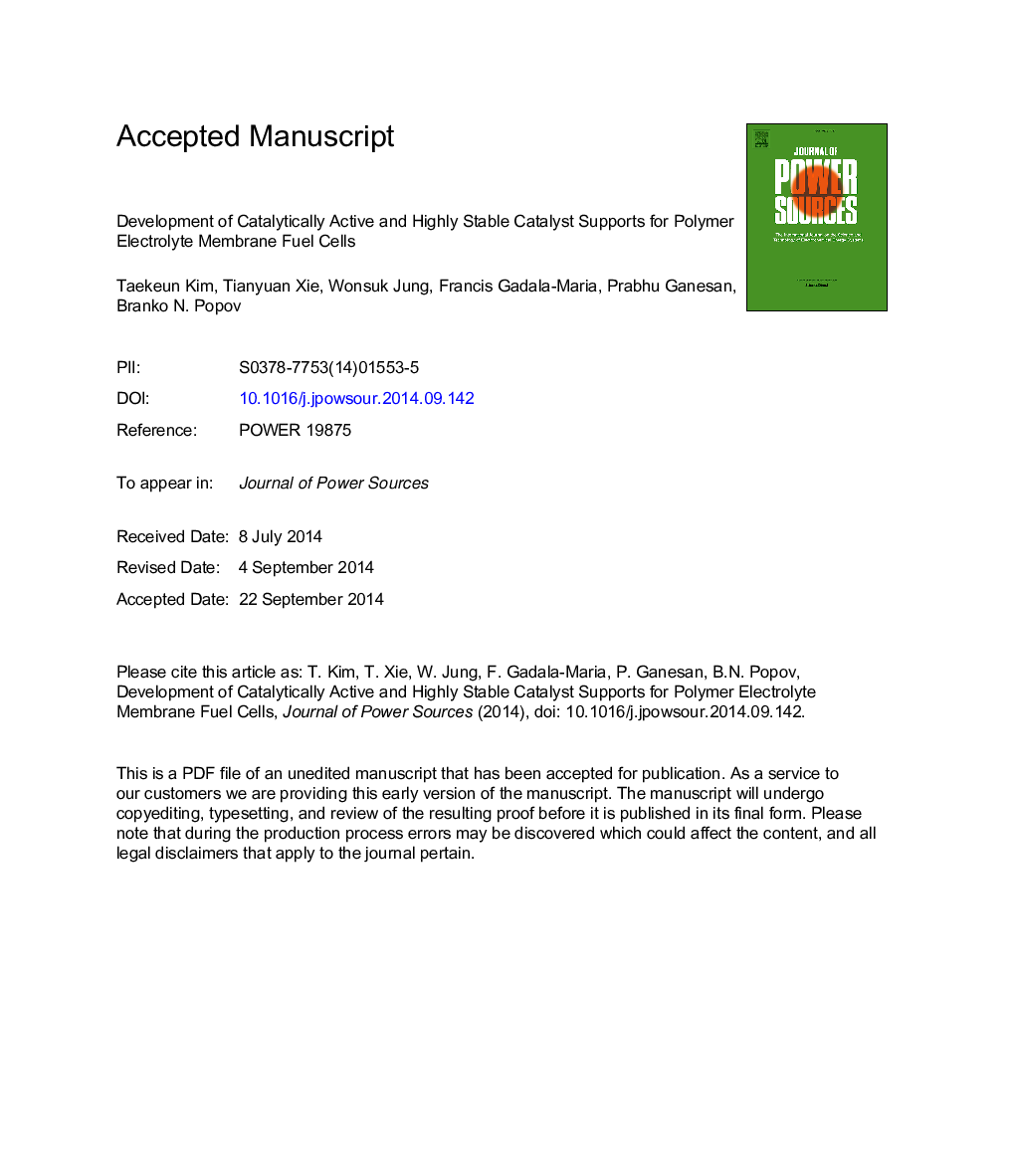| Article ID | Journal | Published Year | Pages | File Type |
|---|---|---|---|---|
| 7734626 | Journal of Power Sources | 2015 | 58 Pages |
Abstract
Novel procedures are developed for the synthesis of highly stable carbon composite catalyst supports (CCCS-800 °C and CCCS-1100 °C) and an activated carbon composite catalyst support (A-CCCS). These supports are synthesized through: (i) surface modification with acids and inclusion of oxygen groups, (ii) metal-catalyzed pyrolysis, and (iii) chemical leaching to remove excess metal used to dope the support. The procedure results in increasing carbon graphitization and inclusion of non-metallic active sites on the support surface. Catalytic activity of CCCS indicates an onset potential of 0.86 V for the oxygen reduction reaction (ORR) with well-defined kinetic and mass-transfer regions and â¼2.5% H2O2 production in rotating ring disk electrode (RRDE) studies. Support stability studies at 1.2 V constant potential holding for 400 h indicate high stability for the 30% Pt/A-CCCS catalyst with a cell potential loss of 27 mV at 800 mA cmâ2 under H2-air, 32% mass activity loss, and 30% ECSA loss. Performance evaluation in polymer electrolyte membrane (PEM) fuel cell shows power densities (rated) of 0.18 and 0.23 gPt kWâ1 for the 30% Pt/A-CCCS and 30% Pt/CCCS-800 °C catalysts, respectively. The stabilities of various supports developed in this study are compared with those of a commercial Pt/C catalyst.
Related Topics
Physical Sciences and Engineering
Chemistry
Electrochemistry
Authors
Taekeun Kim, Tianyuan Xie, Wonsuk Jung, Francis Gadala-Maria, Prabhu Ganesan, Branko N. Popov,
